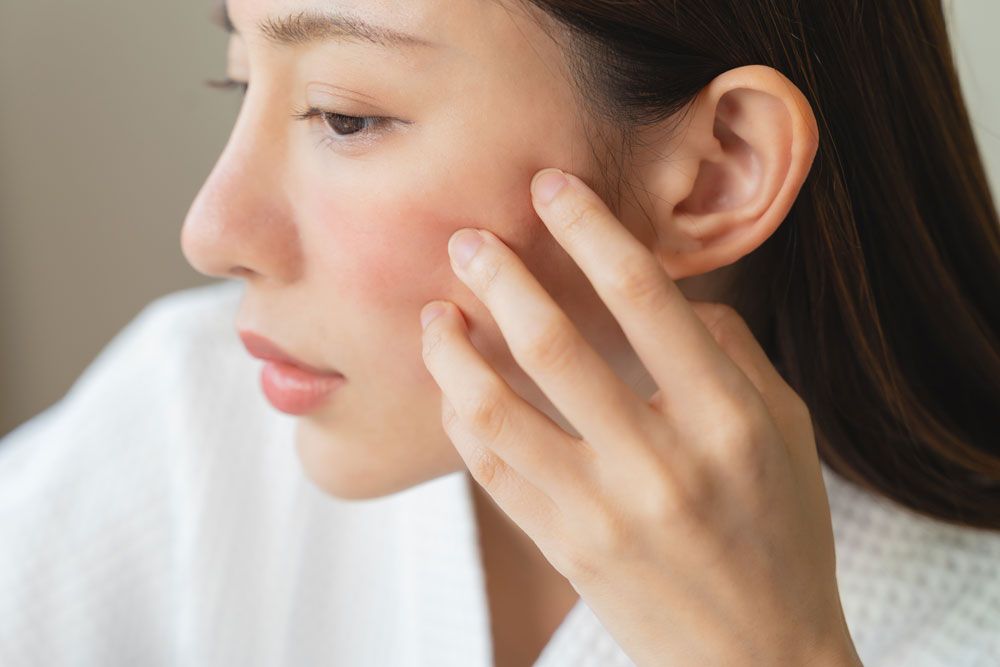What We Treat: Eczema
Eczema, also known as atopic dermatitis, is a chronic skin condition characterized by dry, itchy, and inflamed skin. It can affect people of all ages but is most common in children. Eczema can appear anywhere on the body but is often found on the face, hands, feet, and the insides of the elbows and knees.
Did you know…
Eczema affects millions of people worldwide and is a growing public health concern. According to the National Eczema Association, over 31 million Americans have some form of eczema. Symptoms can vary widely and may include dry, sensitive skin, red and inflamed areas, severe itching, rough or leathery patches, oozing or crusting, and swelling.
Frequently Asked Questions
How can I tell if I have eczema? Symptoms of eczema can vary widely and may include dry, sensitive skin, red and inflamed areas, severe itching, rough or leathery patches, oozing or crusting, and swelling. If you experience any of these symptoms, especially if they persist or worsen, it’s essential to consult with a healthcare professional for evaluation.
What should I do if I suspect I have eczema?
If you suspect you have eczema, it’s crucial to seek medical evaluation promptly. Your healthcare provider will review your medical history, symptoms, and may recommend tests to rule out other conditions. It’s also essential to avoid known triggers, use gentle skin care products, and maintain a healthy skin care routine.
How is eczema treated?
Treatment for eczema primarily involves managing symptoms and preventing flare-ups. This includes regular use of moisturizers, topical steroids, non-steroidal topical treatments, antihistamines, wet wrap therapy, lifestyle and home remedies, phototherapy, and biologic treatments. Your healthcare provider may also recommend education and support resources to help manage your condition effectively.
Are all cases of eczema treated the same way?
No. Eczema treatment is highly individualized and depends on the severity of the condition, the patient’s age, and other factors. While some treatments are common, such as moisturizers and topical steroids, others may be tailored to the specific needs of the patient. It’s essential to work closely with your healthcare provider to develop a personalized treatment plan.
Remember, if you suspect you have eczema, seek prompt medical evaluation and inform your healthcare providers to ensure safe and effective management of your condition. With proper diagnosis and management, eczema can be effectively controlled, allowing you to maintain a healthy and fulfilling lifestyle.


